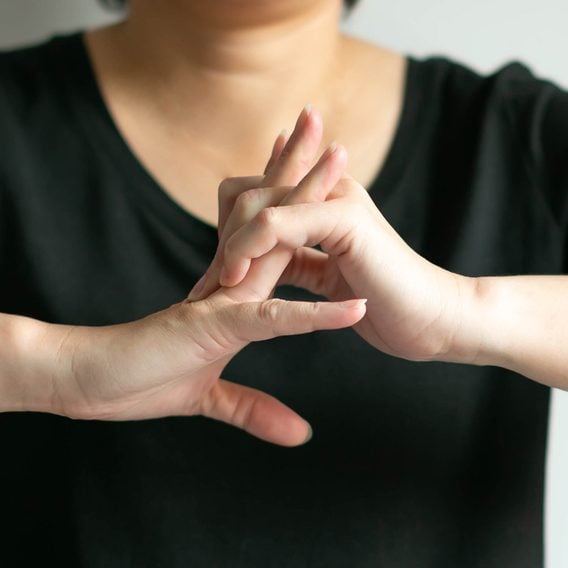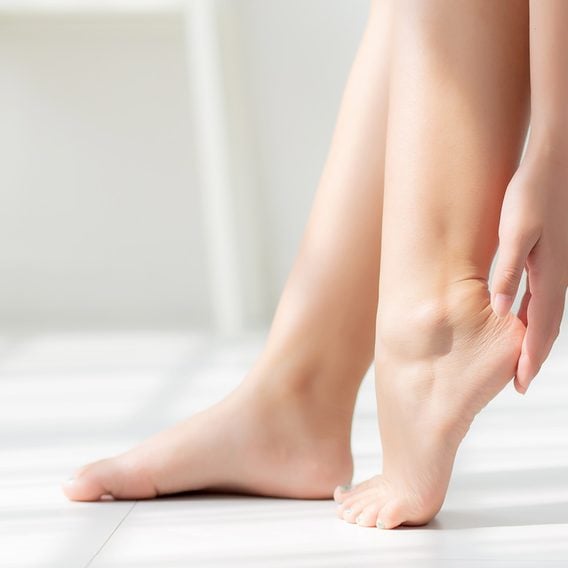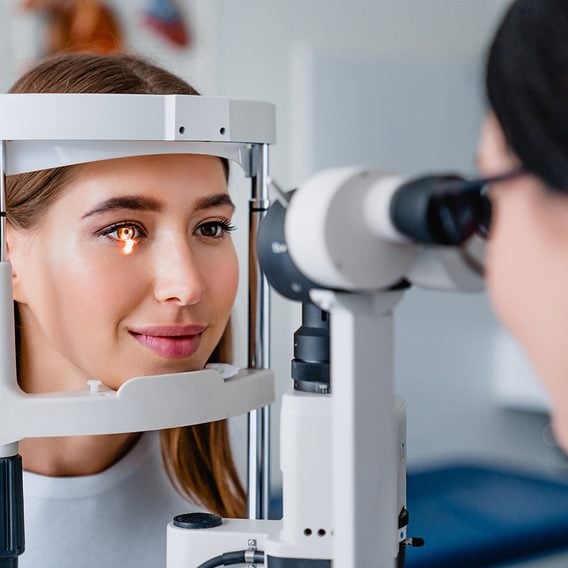
13 Essential Vitamins Your Body Needs to Stay Healthy
Find out exactly what each vitamin does—and how to achieve the recommended daily intake through a healthy diet.

50 Great Things to Do in Lockdown
Instead of focusing on the (very long) list of what you can't do, here are some productive ways to pass...

Medical Trivia Questions Only Geniuses Will Get Right
How well do you know your health lingo? These challenging medical trivia questions are the ultimate test of your health...

Answers to Men’s Most Embarrassing Health Questions “Down There”
Everything you always wanted to know about sexual health, but were afraid to ask.

Ready For a Digital Detox? Here’s How to Kick Social Media Addiction
Whether you’re suffering from social media fatigue, or you simply need some relief from the digital noise of Facebook, these...

10 Self Care Ideas to Help You Find Your Happy Place
From cutting back on social media to helping others, here are 10 of the best ways to practice self care...

How Dancing Helps People With Dementia, Parkinson’s and Multiple Sclerosis
Research shows dancing can help improve the lives of people with neurocognitive and movement disorders.

13 Mind-Bending Facts About Yoga
Meditate on these mindfulness-inducing facts about the ancient practice of yoga.

The Best Tech for Seniors Aging in Place
From automatic pill dispensers to motion sensors, these devices can help you or your aging loved ones live at home...

Why Foods With Artificial Dyes Should Have Warning Labels
Some U.S. states may soon require warning labels on products containing certain food dyes. Should Canada do the same?

3 Steps for Taking Control of Your Rheumatoid Arthritis
Remission is an important treatment goal. Here’s what to know.

Is Cracking Your Knuckles Bad for You?
Mom always warned it would lead to arthritis, but is there any research to back up that claim? Our medical...

Doctors Reveal the Vitamins They Take During Cold and Flu Season
Want to bolster your defenses against viruses? Take a cue from these medical professionals.

Doctors Dismissed Her Monthly Suffering as Period Pain—Until an Ultrasound Revealed Something Strange
“They’re not allowed to tell you anything, but the technician looked scared. She left to get her supervisor...”

We’re Hard on Our Feet—Here’s How to Show Them Some Love
Foot care tends to be an afterthought, but the condition of your your feet can drastically affect your quality of...

Bathroom Mistakes You Didn’t Know You Were Making
Are your personal hygiene habits putting your health at risk?

7 Sleep Secrets From Around the World
Struggling to sleep? We gathered ideas from across the globe—and asked experts to weigh-in on what really works.

These Are Your Biggest Fears, According to Your Star Sign
Learn how to make peace with your greatest fears and use them to your benefit.

This is What Happens When You Eat Too Much Salt
The average Canadian consumes more than double the daily recommended intake of sodium. Here’s why that’s a serious problem—and what...

Natural Remedies for High Blood Pressure
Cutting down salt is just the beginning. Read on for tips on keeping your circulatory system healthy.

Can CBN Really Help You Sleep? I Tested It to Find Out
Sleep-challenged writer Leah Rumack tested CBN—a non-intoxicating cannabis compound—to see if it helps with rest and relaxation.

According to New Research, You Can’t “Catch Up” on Lost Sleep—Here’s Why Tha...
Your heart health deteriorates with continuous sleep deprivation, and a weekend sleep-in isn’t a guaranteed strategy to recover...

14 Easy Brain Exercises That Help You Get Smarter
Would you believe that brushing your teeth with your non-dominant hand can stimulate your grey matter? Try it out—along with...

30 Old-Time Home Remedies That Actually Work
Honey to heal a wound. Cherries for gout. Cod-liver oil— blech!—to keep your eyes healthy. Your grandmother and her doctors...

Wearing This May Reduce Your Dementia Risk, According to New Research
Intriguing findings from a Johns Hopkins study reveal how a common device could delay cognitive decline in older adults.

Body Parts You Never Knew You Had
Only 20 percent of people can even use this one body part. Are you one of them?

How to Maintain Healthy Eyes at Every Age
Practical tips to prevent vision loss.

It’s Not Only Outdoor Pollution That Can Be Harmful
Surprisingly, the indoor air quality of our homes may be more hazardous than the air outside. Here’s how to make...

15 Everyday Habits of People With an Impressive Memory
Having trouble remembering the name of the person you just met, or even where you left your phone charger? These...

Aging in Place: A Guide to Growing Older at Home
Ninety percent of Canadian seniors want to live in their homes for as long as possible. Here's how to make...

This is the Smartest Zodiac Sign, According to Astrologists
Each zodiac sign has its strengths and weaknesses, but when it comes to intelligence, astrologists say these two stand out...